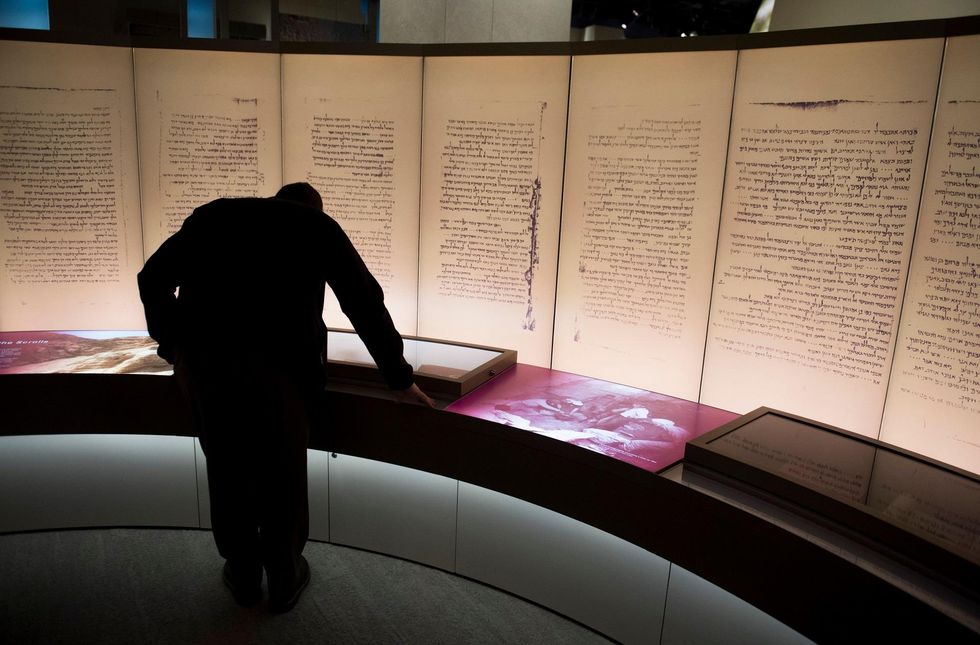
The Museum of the Bible says it has discovered that five of its Dead Sea Scroll fragments are fake, and will no longer be displayed. (SAUL LOEB/AFP/Getty Images)

The Museum of the Bible in Washington, D.C., says five of its Dead Sea Scroll fragments are fake, and will no longer be on public display.
CNN first broke the story on Monday, saying that a German institute made the determination after finding the fragments "show characteristics inconsistent with ancient origin and therefore will no longer be displayed at the museum."
The museum's chief curator, Jeffrey Kloha, admitted, "Though we had hoped the testing would render different results, this is an opportunity to educate the public on the importance of verifying the authenticity of rare biblical artifacts, the elaborate testing process undertaken and our commitment to transparency.
"As an educational institution entrusted with cultural heritage," he continued, "the museum upholds and adheres to all museum and ethical guidelines on collection care, research and display."
Founder and chairman Steve Green — who is also the owner of the Hobby Lobby craft store chain — accumulated the collection, but did not disclose how much his family paid for the 16 Dead Sea Scroll fragments they purchased. Some legitimate specimens are considered to be priceless, and a number of them have sold for millions of dollars, according to CNN.
The Scrolls were found in 1947 in caves by the Dead Sea east of Jerusalem, and are hailed as one of the most important archaeological discoveries of the 20th century, the Daily Mail reports, because they are "the earliest copies of the Hebrew Bible ever found, and the oldest written evidence of the roots of Judaism and Christianity in the Holy Land."
According to the Independent, roughly 100,000 fragments exist, but "the excavation and selling of fragments is outlawed under a U.N. convention on cultural property from 1970, which means that private sellers fight over fragments removed before that time."
Scientists have expressed concern that many of the scroll fragments being sold are fakes.
"I think what we have here is a mix of material that is authentic and of material that are forgeries," professor Eibert Tigchelaar from the University of Leuven in Belgium said, in an interview with Live Science in 2016, regarding the 70 Dead Sea Scroll fragments that had appeared on the antiquities market since 2002.